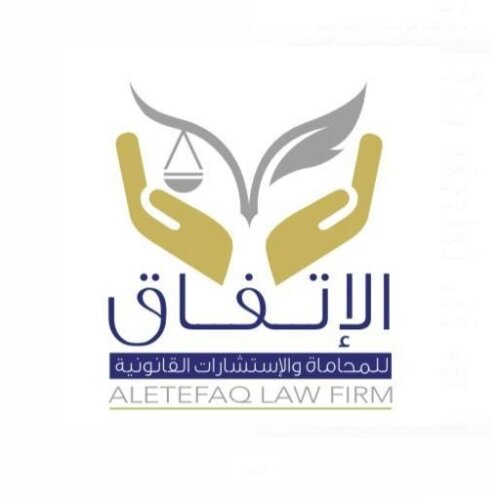Best Lawsuits & Disputes Lawyers Near You
Share your needs with us, get contacted by law firms.
Free. Takes 2 min.
Or refine your search by selecting a city:
List of the best lawyers
Lawsuits & Disputes Legal Questions answered by Lawyers
Browse our 51 legal questions about Lawsuits & Disputes and read the lawyer answers, or ask your own questions for free.
- Can I challenge an arbitration award in Norway if I never got to see key evidence?
- I was in a contract dispute and the arbitrator issued an award against me. The other side introduced documents late and I didn’t get a fair chance to respond. What are the grounds and deadlines to set aside an arbitral award in Norway?
-
Lawyer answer by Equity Law House
Norway allows a court to set aside an arbitration award, but it does not provide a right to appeal the merits. The remedy is annulment if the process was fundamentally flawed. Grounds under Section 43 include: Due Process Violation (not...
Read full answer - Can I challenge a private arbitration award in South Africa if the arbitrator ignored key evidence?
- I was in a contract dispute and the arbitrator issued an award against me. Some documents were submitted but not mentioned in the reasons, and I feel the process was unfair. What are the grounds and time limits to review or set aside the award?
-
Lawyer answer by Equity Law House
Thanks for your question. To help provide the most accurate guidance, could you please clarify a few details: 1) Was the arbitration governed by South Africa’s Arbitration Act of 1965 or any other arbitration rules (e.g., UNCITRAL or private institutional...
Read full answer - What steps should I take if I suspect my Dutch attorney breached client confidentiality by sharing information?
- I live in the Netherlands and believe my lawyer disclosed confidential client information to a third party. I want to know my options, including filing a formal complaint with the Dutch Bar Association (Nederlandse Orde van Advocaten) and potential remedies. Do I need to hire a lawyer to pursue these... Read more →
-
Lawyer answer by Ascendance International Consulting (A-I-C)
In the Netherlands a lawyer’s duty of confidentiality is a statutory and professional obligation, so if you have credible evidence that your attorney disclosed your client information to a third party you can (1) file a formal complaint with the...
Read full answer
Lawsuits & Disputes Legal Articles
Browse our 35 legal articles about Lawsuits & Disputes written by expert lawyers.
- A Guide to Navigating Divorce Proceedings in South Africa
- Navigating Divorce Proceedings in South Africa Key Takeaways Ending a marriage in South Africa involves navigating specific legal channels, from deciding on child care to dividing assets based on your matrimonial property regime. Understanding the procedural differences between regional courts and the High Court can save you significant time, money,... Read more →
- Small Claims Court in Ontario Canada - Guide & Process FAQ
- The financial limit for filing a lawsuit in Ontario Small Claims Court is $35,000 CAD, excluding interest and court costs. Plaintiffs generally have exactly two years from the date the dispute arose to file their claim under the Ontario Limitations Act. Winning a judgment does not mean the court will... Read more →
- Inheritance and Estate Planning for Expats in Cyprus
- EU Regulation 650/2012 allows expats to choose the inheritance law of their home country over Cyprus law, but this must be explicitly stated in a will. Cyprus "forced heirship" rules automatically reserve a significant portion of your estate for your spouse and children, regardless of your written wishes, unless you... Read more →
About Lawsuits & Disputes Law
Lawsuits and disputes law is a vast field encompassing various types of legal disagreements between individuals, businesses, and governments. This area of law covers a broad range of issues, including contract disputes, personal injury claims, property disputes, and intellectual property disputes, among others. It generally involves litigation, mediation, or arbitration process to resolve conflicts and ensure the fair administration of justice.
Why You May Need a Lawyer
There are several situations where you might require legal assistance in lawsuits and disputes:
- If you are being sued or need to enforce a legal right against another party.
- When dealing with complex contract disputes or breaches of contract.
- If you have suffered personal injury and wish to make a claim for damages.
- During disputes over property ownership or use.
- For resolving intellectual property issues, such as trademark or copyright disagreements.
- When involved in family law disputes, including divorce and custody battles.
- To handle consumer rights disputes and claims.
- If seeking an alternative dispute resolution, like mediation or arbitration.
Local Laws Overview
The legal process and regulations involved in lawsuits and disputes vary by jurisdiction. However, key aspects often include:
- Statute of Limitations: The time frame within which a lawsuit must be filed.
- Pleadings: The initial documents filed by both parties outlining their claims and defenses.
- Discovery Process: A pre-trial phase where both parties exchange evidence.
- Trial Procedures: Rules regarding how trials are conducted, including presenting evidence and testimony.
- Judgments and Appeals: Procedures for appealing a court's decision if one party is dissatisfied with the outcome.
Frequently Asked Questions
What is the difference between a civil and a criminal lawsuit?
A civil lawsuit involves disputes between individuals or organizations where compensation may be awarded to the victim, whereas a criminal lawsuit involves actions considered harmful to society as a whole and are prosecuted by the state.
How can I start a lawsuit?
To initiate a lawsuit, you must file a complaint or petition with the suitable court and pay any required fees. It's advisable to consult with a lawyer to ensure proper procedure and documentation.
What is discovery in a lawsuit?
Discovery is a pre-trial phase where parties exchange relevant information through depositions, document requests, and interrogatories to prepare for the trial.
What are contingency fees?
Contingency fees are arrangements where a lawyer agrees to represent a client without upfront payment, instead taking a percentage of the recovery amount if the case is won.
How long does a lawsuit take?
The duration of a lawsuit varies widely depending on factors such as case complexity, court schedules, and the willingness of parties to settle. It can range from months to several years.
Can I represent myself in a lawsuit?
Yes, you have the legal right to represent yourself in court; however, it may not be advisable due to the complexities involved in legal proceedings.
What is mediation?
Mediation is a voluntary process where a neutral third party helps disputing parties reach an agreement outside of court. It is typically less formal and can be quicker than traditional litigation.
When is a lawsuit considered frivolous?
A lawsuit is considered frivolous if it lacks any legal merit and is intended to harass or extort the defendant, often resulting in penalties for the frivolous litigant.
What happens if I lose a lawsuit?
If you lose a lawsuit, a judgment will be entered against you, which may include orders to pay damages or comply with certain actions. You may have the option to appeal.
How do I collect a judgment?
To collect a judgment, you may need to undertake additional legal actions, such as garnishing wages or seizing assets, often with the help of a lawyer or legal collection agency.
Additional Resources
There are numerous resources available for those needing assistance with lawsuits and disputes:
- Local Bar Associations: Often provide referrals to qualified attorneys and offer free or low-cost legal clinics.
- Legal Aid Societies: Organizations providing free legal assistance to those unable to afford a lawyer.
- Government Websites: Offer tools and information on legal rights and procedures.
- Online Legal Platforms: Provide forums, articles, and resources to help understand legal processes.
Next Steps
If you need legal assistance in lawsuits and disputes, consider the following steps:
- Consult with a qualified attorney experienced in the relevant area of law for your case.
- Gather all relevant documents and information pertaining to your case.
- Understand your legal rights and obligations as well as the possible outcomes of your case.
- Consider alternative dispute resolution methods as a means to resolve issues amicably.
- Keep detailed records of all interactions and agreements made during the legal process.
Lawzana helps you find the best lawyers and law firms through a curated and pre-screened list of qualified legal professionals. Our platform offers rankings and detailed profiles of attorneys and law firms, allowing you to compare based on practice areas, including Lawsuits & Disputes, experience, and client feedback.
Each profile includes a description of the firm's areas of practice, client reviews, team members and partners, year of establishment, spoken languages, office locations, contact information, social media presence, and any published articles or resources. Most firms on our platform speak English and are experienced in both local and international legal matters.
Get a quote from top-rated law firms — quickly, securely, and without unnecessary hassle.
Disclaimer:
The information provided on this page is for general informational purposes only and does not constitute legal advice. While we strive to ensure the accuracy and relevance of the content, legal information may change over time, and interpretations of the law can vary. You should always consult with a qualified legal professional for advice specific to your situation.
We disclaim all liability for actions taken or not taken based on the content of this page. If you believe any information is incorrect or outdated, please contact us, and we will review and update it where appropriate.
Browse lawsuits & disputes law firms by service
Attorneys in related practice areas.
Browse lawsuits & disputes law firms by country
Refine your search by selecting a country.

















